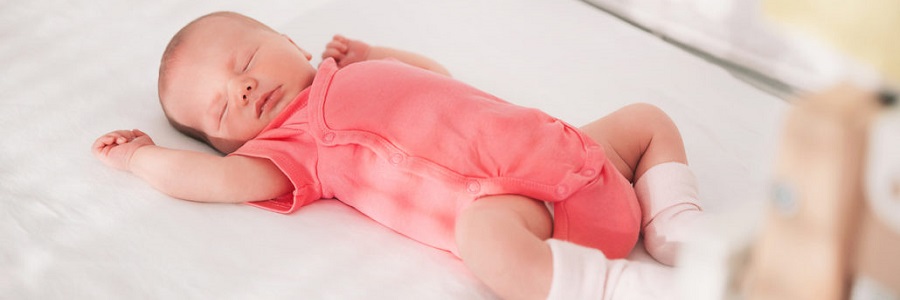Kentucky Children's Hospital is the state's only Safe Sleep Hospital

Helping babies sleep safely is a priority for all of us at the Kentucky Children's Hospital. That's why we're so proud to have been named as Kentucky's only Cribs for Kids National Gold Certified Safe Sleep Hospital.
This honor recognizes our commitment to reducing infant sleep-related deaths by encouraging safe-sleep practices both in the hospital and after babies go home.
Kentucky has one of the highest rates of sudden unexpected infant death (SUID) in the nation, but at KCH, we're working hard to reverse that trend.
Our nurses receive training about safe sleep so that they can educate and model safe-sleep practices for families. In addition, parents and caregivers watch a video about safe sleep prior to their baby’s discharge home and have a discussion with nurses about SUID risk-reduction strategies.
Tips for safe sleep
In honor of our recognition, here are 10 tips to ensure your baby is sleeping safely, courtesy of our friends at Cribs for Kids:
1. Always place your baby alone, on her back and in a crib every time she sleeps.
2. Always use a firm, flat crib mattress covered by a fitted sheet. Car seats and other sitting devices, such as swings, wedges, and devices that position your baby on an incline, are not safe for sleep.
3. Check to make sure that your crib has not been recalled. In addition, cribs with missing hardware should not be used. Do not attempt to fix broken components of a crib, as many infant deaths are associated with cribs that are broken or have missing parts (including those that have presumably been fixed).
4. Share your room, not your bed. Do not share your bed with your children. Bed-sharing puts babies at risk of suffocation, strangulation and SUID. Studies have found that bed-sharing is the most common cause of deaths in babies, especially those 3 months old and younger.
Instead, you may share your room with your child by having a crib in the room, a bassinet or portable crib near your bed, a separate crib attached to your bed, or a similar arrangement.
5. Do not smoke near pregnant women or infants. Your home and your car should both be smoke-free. Eliminate second-hand smoke from all places in which children and other nonsmokers spend time.
6. Do not use bumper pads or similar items that attach to crib slats. There is no evidence that these items prevent injury in young infants, but they do present a risk for for suffocation, entrapment and strangulation.
7. Don’t overheat or overdress your baby. Dress your baby in light sleep clothing. Keep the room at a temperature that is comfortable for an adult (between 68-72 degrees Fahrenheit).
8. Breastfeeding is associated with a reduced risk of sleep-related death. If possible, babies should be breastfed for the first six months of their life.
9. Avoid devices that claim to reduce the risk of SIDS. These devices include wedges, positioners, special mattresses and special sleep surfaces. There is no evidence that these devices reduce the risk of SIDS or suffocation or that they are safe.
10. Travel is one of the biggest causes of sleep disturbances for babies. As you pack your bags to travel for holidays, remember to include what you’ll need to ensure a separate, safe sleeping environment for your baby while away from home. If you plan to stay in a hotel, ask in advance if they have cribs available that you can use in your room.




